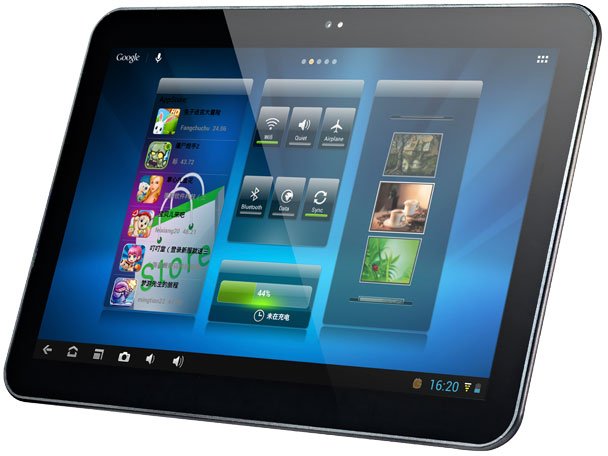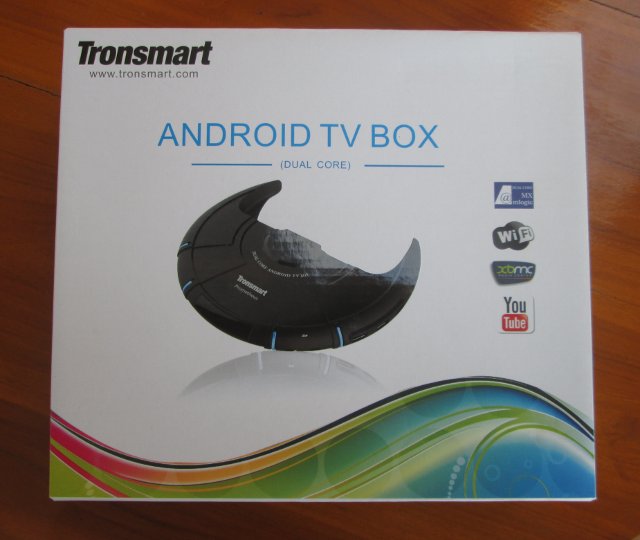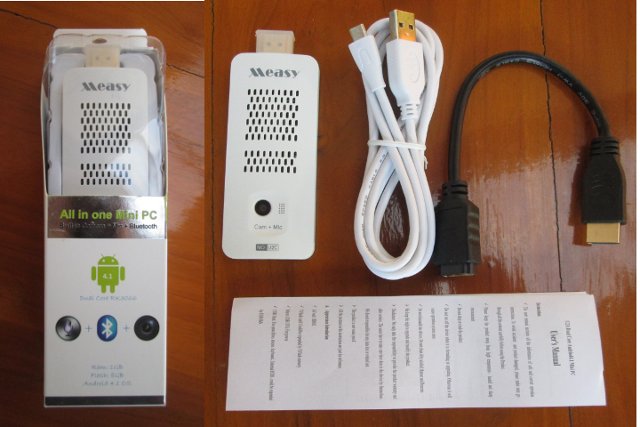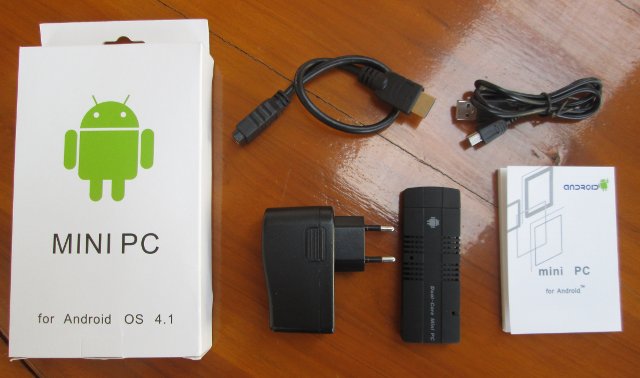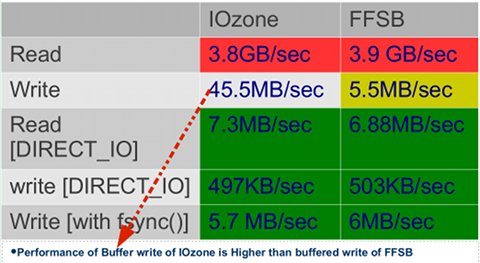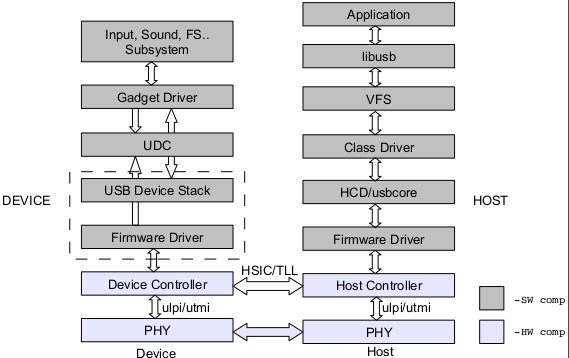I first heard about Rockchip RK3188 quad core Cortex A9 at the end of 2012, Rockchip showcased an RK3188 tablet development platform at CES 2013, and we were told the first tablet would ship in March without more details about available models. It appears Pipo Max M9 may be one of the first RK3188 available for purchase. This Android 4.1 tablet features a 10″ IPS display with 1280 x 800 resolution, 2 GB RAM, and 16 GB Flash. Here are the full specifications for PiPO MAX M9: SoC – Rockchip RK3188 Quad core Cortex A9 @ 1.8GHz with Mali-400MP4 GPU @ 533 MHz. System Memory – 2 GB RAM Storage – 16 GB flash + microSD slot Display – 10.1″ IPS display with 10-Point capacitive touch screen. Resolution: 1280 x 800 pixels Connectivity: Wi-Fi 802.11 b/g/n Bluetooth 2.1 3G via external USB dongle Camera – 2.0MP front camera, 5.0MP rear […]
Tronsmart Prometheus Review
Now is the time to review another device sent to me by Geekbuying. Tronsmart Promotheus is an Android 4.1 Android set-top box powered by AMLogic AML8726-MX (aka AML8726-M6) with 1GB RAM and 4GB Flash, 3 USB ports, as well as Wi-Fi and Ethernet for connectivity. This device, which looks like a spaceship (my wife said it looks like a buffalo), has the potential to run XBMC with full hardware acceleration in Android and/or Linux. Tronsmart Prometheus Unboxing I’ve received the box in the package below. Apart from Promotheus media player, the package contains a 12V/1A power supply, an HDMI cable, an AV cable and a user manual in English that appears to be useful for once. It explains how to connect to device to the TV, to the networks, and to the power, how to do firmware upgrade, and how to troubleshoot it. It is presented in a way that […]
Review of Measy U2C Rockchip RK3066 Mini PC With Built-in Camera
I’ve received 2 new devices to play with this week, as Geekbuying sent me Tronsmart Promotheus set-top box and Measy U2C, a mini PC with a webcam, so that I can test and review them. Today, I’ll leave the “Spaceship” set-top box parked in another galaxy, and I will review Measy U2C mini PC. This HDMI dongle is powered by Rockchip RK3066, runs Android 4.1.1, and comes with 1 GB RAM, 8GB Flash, Wi-Fi & Bluetooth connectivity, and a built-in 2MP Webcam. For complete specs, you can check my post about B12 mini PC since this device uses the same board internally. Geekbuying sells this all-in-one mini PC for $74.99 including shipping. As usual, I’ll post some unboxing pictures, and then review the device, this time, with a section dedicated to the webcam, since this is the key selling point of this mini PC. Measy U2C Unboxing Measy U2C comes […]
Kimdecent Droid Stick A2 Review
At the beginning of December 2012, I wrote a post about Droid Stick A2 mini PC based on AMLogic AML-8726-MX to show some pictures of the device, but I could not really test as the firmware was not complete, and was promise a working firmware soon. Unfortunately, things did not really go according to plans for this hardware, so the firmware never showed up… Luckily, Kimdecent found another version of the device with basically the same specs, a slightly different casing, and more importantly a “working” firmware. The company was kind enough to send me another sample for review. Droid Stick A2 Unboxing Here’s what the new Droid Stick A2 and its accessories look like. Beside Droid Stick A2 mini PC, the package contains a power adapter (5V/2A), a mini USB to USB cable, a short HDMI cable and a user’s manual in English. A close up shows the device […]
GPUs Comparison: ARM Mali vs Vivante GCxxx vs PowerVR SGX vs Nvidia Geforce ULP
I’m always very confused when it comes to comparing GPUs in different SoCs, and I could not really find comparisons on the web, so I’m going to give it a try even though, as you’re going to find out, it’s actually quite a challenge. There are mainly 4 companies that provide GPUs: ARM, Imagination Technologies, Vivante and Nvidia. [Update: Two comments mentioned Qualcomm Adreno and Broadcom VideoCore are missing from the list. Maybe I’ll do an update later]. Each company offers many different versions and flavors of their GPU as summarized below. ARM Imagination Technologies Vivante Nvidia Mali-400 Series: Mali-400 MP Mali-450 MP Mali-600 Series Mali-T604 Mali-T624 Mali-T628 Mali-T658 Mali-T678 PowerVR SGX Series 5: SGX520 SGX530 SGX531 SGX535 SGX540 SGX545 PowerVR SGX Series 5XT: SGX543MP1-16 SGX544MP1-16 SGX554MP1-16 PowerVR SGX Series 6: G6200 G6230 G6400 G6430 G6600 2D graphics: GC300 GC350 3D graphics: GC400 GC800 GC1000 GC2000 GC4000 ULP GeForce (Tegra […]
HiAPAD Hi-802 mini PC Unboxing and Review
Kimdecent has just sent me one HiAPAD Hi-802 mini PC powered by Freescale i.MX6 Quad, and running Android 4.0.4 ICS. This is the first quad core HDMI TV dongle available on the market, and it can run both Android and Linux distributions such as Ubuntu since Freescale released the source code for i.MX6 processor family. Today, I’ll just show some pictures of the device, and review the device by running some tests in Android. I’ll try the Ubuntu 11.10 image release for GK802 another day. Hi-802 Unboxing I received the package by DHL within 3 days, and it includes Hi802, a 5V/2A power supply, and a USB to microUSB cable. A closer look at the device reveals an aluminum casing with lots of ventilation holes (really needed since the device gets pretty hot). Hi802 features an HDMI male connector, a microSD card slot on the side, a full USB port, […]
FFSB and IOzone: File System Benchmarking Tools, Features and Internals – ELCE 2012
Keshava Munegowda and Sourav Poddar, software engineers at Texas Instruments, give a presentation about 2 relatively new file system benchmarks: The Flexible Filesystem Benchmark (FFSB ) and IOzone at the Embedded Linux Conference Europe 2012. Abstract: The IOzone is widely used File System Bench-marking tool in both linux and windows systems. The Flexible Filesystem Benchmark (FFSB) is a new cross-platform file-system performance measurement tool. It uses custom profiles as input to measure multiple file systems read/write performances. This paper identifies and compares these file system benchmarking tools in terms of the optimal usage techniques such as buffer size, number of threads, number of write blocks etc. Internals and features of these tools , and the necessary steps involved in the porting of benchmarking tools to different platforms are also discussed. The depicted file system benchmarking performance numbers, in this paper, are measured in both x86 PCs and ARM based SOC […]
USB Debugging and Profiling Techniques – ELCE 2012
Kishon Vijay Abraham and Basak Partha, respectively software design engineer and tech lead at Texas Instruments, provide an overview of techniques that can be used to debug Linux USB drivers on the host PC or/and the device itself. Abstract: The widespread integration of USB into embedded applications presents many developers with the challenge of debugging problems, that are difficult to detect and isolate when a USB device misbehaves. This paper discusses about the various USB debugging techniques which includes debugging at the host PC, at the device and in the cable and discuss when each of the above techniques will be handy. This paper will also discuss about the various facilities provided within Linux kernel to aid in USB debugging e.g sysfs, trace points etc. and the various user space tools available to help USB debugging e.g USBMON. This paper also discusses about the profiling techniques at various levels in […]


